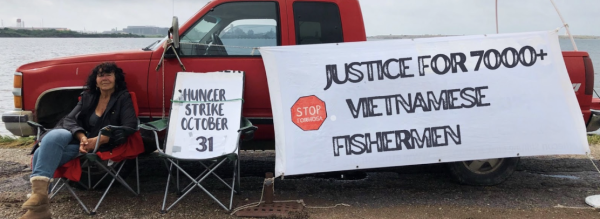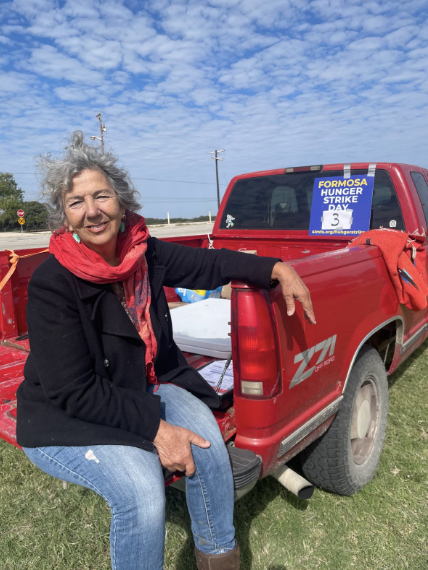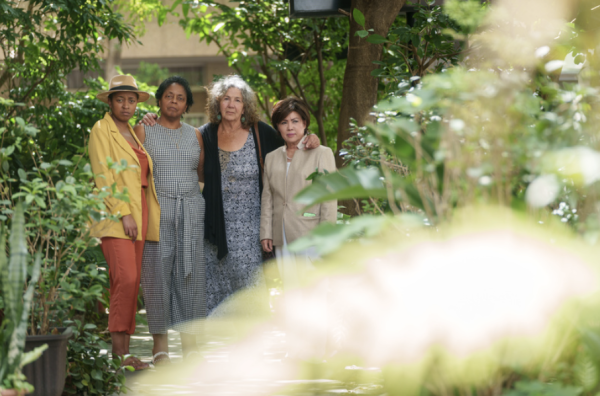Fossil fuel and petrochemical empires have taken the Gulf South under siege. Hundreds of industrial facilities crowd once healthy coasts and waterways — they greedily consume groundwater, threaten critical wetlands and release deadly pollutants and carcinogens into neighboring communities. Brought to the region by favorable tax subsidies and political climates, petrochemical plants and refineries are ceaselessly expanding to feed a global hunger for plastics. Residents of Texas and Louisiana, living in the hub of toxic production, endure the destruction of their ecosystems, livelihoods and bodily health.

Capitalizing on our globalized, hyperconsumerist economy, transnational corporations sustain the world’s plastic addiction through the mass manufacturing of petroleum-based goods — a dangerous, yet lucrative operation. One petrochemical corporation, Formosa Plastics Group, has a particularly egregious track record. Originating from Taiwan, Formosa Plastics is the fourth-largest petrochemical company in the world, possessing a $103 billion market capitalization and over 100 subsidiary companies. The company’s facilities in Louisiana and Texas consistently break environmental regulations and experience serious workplace injuries. Nevertheless, FPG is navigating legal procedures to build yet another plant in Louisiana, located in the infamous “Cancer Alley.” The facility would double toxic emissions in an area already heavily concentrated with deadly pollutants.
Outraged by Formosa Plastics’ disastrous impact on their communities, activists boldly resist the company and demand better. Diane Wilson, a 75-year-old fisherwoman from Calhoun County, Texas, has been one of the company’s longest and most successful opponents. For generations, her family has made their livelihood from fishing in the estuarine bay — a way of life that is existentially threatened by water pollution from FPG’s Point Comfort facility. Among other toxic pollutants, the plant releases countless tons of plastic pellets into the bay, which are entangled in plants and eaten by fish. Government officials blatantly ignored environmental and safety concerns, forcing Wilson to take matters into her own hands.
In her activism against FPG, Wilson’s greatest weapons are citizen science and civil disobedience. Working with ex-plant workers and concerned community members, she spent years collecting thousands of plastic pellet samples to build a legal case against the company. In 2019, the hand-gathered evidence allowed her team to win a $50 million settlement from Formosa Plastics, the largest settlement in U.S. history for a violation of the Clean Water Act.
The historical settlement, which funded community restoration and monitoring projects, is not her only victory against environmental threats. In 2021, she conducted a hunger strike to protest a Texas dredging project that would allow more oil exporting operations. After refusing to eat for 36 days, Wilson successfully stopped the project from moving forward. Now, Wilson is employing the same tactic to demand action from Formosa Plastics overseas.

Wilson began a new hunger strike on Oct. 31, 2023. This time, she called on FPG to address injustices in central Vietnam. A Formosa Plastics subsidiary operates a steel plant in Ha Tinh province, which caused a mass fish die-off and one death after spilling highly toxic waste into the sea. Though the incident occurred in 2016, thousands of fishermen remain displaced from the incident, and victims were imprisoned for protesting the company’s failure. As legal efforts against the Ha Tinh steel plant stall, Wilson is fighting for the political prisoners’ release and fishermen’s just compensation through direct action.
Wilson’s strike also comes months after activists requested to meet with corporate officials about the injustices in Vietnam. This May, Wilson and her allies traveled to the FPG headquarters in Taipei, Taiwan to voice their demands at the company’s annual meeting of stakeholders. Allies accompanying Wilson included Nancy Bui, a Vietnamese American activist based in Texas, who founded the Justice for Formosa Victims organization. She was also joined by Sharon Lavigne, a Louisiana activist who spearheaded opposition against the massive FPG plant slated for construction in her community. These three women comprise the International Monitor Formosa Alliance, which promotes international activist collaborations against FPG. Meeting attendees allowed the IMFA activists to speak but did not respond to their concerns.
Kicking off the strike, Wilson sat in a ditch just outside the legal boundary of the Texas Point Comfort facility. Only her red pickup truck and a sign, reading “Stop Formosa: Justice for 7000+ Vietnamese Fishermen,” demarcated her presence. With time, her humble campaign expanded. Allies planted large white crosses around the site, in the semblance of a cemetery. After three weeks without a response from FPG, Wilson began occupying the encampment at all hours, consuming nothing to sustain her except water.

Wilson augmented her in-person struggle at the Point Comfort facility through online activism. When her strike began, Wilson encouraged supporters to engage in a “global hunger strike” alongside her for one or a few days. During the month, more than 250 people from 12 countries have joined the strike. Posted photos document participants holding signs in multiple languages with messages like “Striking for a Day With Diane.” Wilson shared updates with global followers by publishing journal entries about her daily experiences on the strike.
On Nov. 29, Wilson completed 30 days of her hunger strike while staying at the facility encampment. Lack of nutrition, as well as the cold weather and poor sleeping conditions, were taking a significant toll on her 75-year-old body. In the previous days, allies had given Wilson an emergency Life Alert tool, fearful for her deteriorating health. By the end of the month, medical professionals told Wilson that she may lose her life if she continued to go without eating. Though reluctant to stop, she decided to end the strike after four long weeks.
Efforts to achieve justice for Vietnamese fishermen are far from over. Her allies, including Waterkeeper Dan Lê, continue to occupy the encampment of tents in front of Formosa Plastics’ Point Comfort facility. Since the strike’s conclusion on Friday, the IMFA has hand-delivered a letter every day to plant officials restating their demands. Over 50 local and international organizations have signed onto the letter to show their support. Despite FPG’s continued silence on Wilson’s demands, her defiance is a remarkable feat.
Inspired readers can join Wilson’s fight by signing on to her global hunger strike, where they can strike for one or a few days in solidarity with her cause. Community members can also encourage their organizations to sign onto the IMFA’s open letter of demands to Formosa Plastics. Finally, Wilson welcomes volunteers to stay at their encampment in Texas as their struggle for justice continues.
When acting as cognizant consumers and allies to activists, the public can amplify brave opposition to unchecked petrochemical expansion. The world is drowning in industrial development from the Gulf South to central Vietnam — will you hear the call to join the wave of resistance?



Leave a Comment